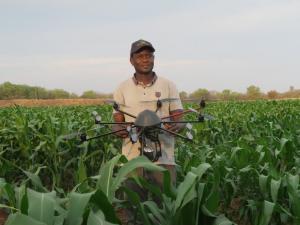
The World Bank has defended Rwanda about data falsification allegations
The World Bank has dismissed reports that Rwanda falsifies data on poverty under its watch, saying that Rwanda uses appropriate deflators, adding that there is no single “best way” to estimate poverty that is appropriate for all contexts and all times.
When one looks at Rwanda's development, there is often a conflict that arises. On one hand, supporters of the Rwandan government say that Paul Kagame has done an excellent job at rising the country out from the ashes of the genocide to being one of Africa's powerhouses. And on the other, critics of the government say that the regime lies about the development in Rwanda so that the world does not have a clear picture of what is really happening in Rwanda.
The World Bank statement was issued on Saturday, August 17, in the wake of a well-orchestrated campaign by western publications accusing President Paul Kagame and his government of altering data on measuring poverty between 2011 and 2014 to create an impression that Rwanda was making great progress on reducing poverty.
The World Bank statement, in defense of Rwanda’s methodology, came out few days after President Kagame weighed in on the debate, responding to a Financial Times story that alleged that he makes poverty data toe his line in a bid to create a good impression.
The Washington-based global institution said that it has worked closely and rigorously with Rwanda on poverty data and recognizes the methodology Rwanda applies in measuring poverty.
“World Bank staff weighed in publicly, clearly, and with commensurate technical rigor on the Rwanda poverty measurement debate in a working paper (Revisiting the Poverty Trend in Rwanda: 2010/11 to 2013/14) published in September 2018.”
Figures from the National Institute of Statistics of Rwanda (NISR) showed that poverty declined from 46 % in 2010/11 to 39% in 2013/14. This is what the Financial Times is disputing vehemently. The FT says that the manipulation happened just before a referendum in 2015 that allowed President Paul Kagame to extend his then 15-year rule for up to another two decades.
It wrote, "Its analysis of the survey’s more than 14,000 data points and interviews with academics shows that rising prices for Rwandan families meant poverty most likely increased between 2010 and 2014” and that there have always been attempts to manipulate poverty reduction information.
“The National Institute of Statistics of Rwanda (NISR) shared the underlying survey data and engaged in constructive discussions to elaborate in detail on the methodology used to measure and monitor poverty in Rwanda. The published technical paper was based on careful and clearly set-out analysis, with a finding that supported the official trend published in NISR (2016)."
The NISR is adamant that the figures are correct and that poverty has been truly reduced in Rwanda. They have dismissed the Financial Times articles as "western propaganda." Yusuf Murangwa, the Director-General of the NISR, has maintained the position of Rwanda clearly: Rwanda does not lie about its poverty reduction data.
“Rwanda’s performance in poverty reduction. . . is unequivocally real,” he said. “The key conclusion — that poverty fell substantially between 2010/11 and 2013/14 — is robust: it holds true."
“Businesses improved a lot; agriculture was doing well, nutrition of Rwandans improved; infant mortality, maternal mortality, all those indicators improved."
Is Rwanda manipulating development information in a bid to please Western donors and hiding away the fact that poverty is far from being defeated as the government posits? Or this is a concerted effort by Western media, as usual, to tarnish the image of African leaders who are committed to developing their countries for the benefit of everyone?
